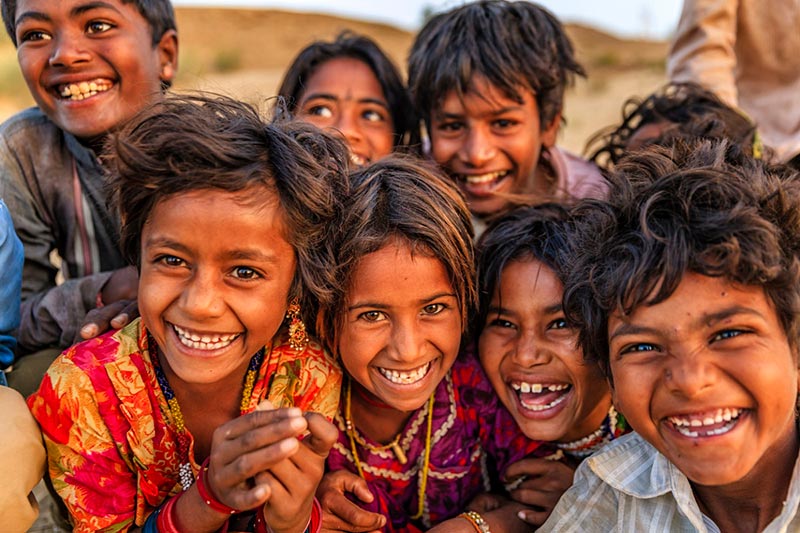Photo credit – Getty Images
Every individual enjoys a set of inalienable rights that are globally reckoned as human rights. Every year, December 10 is marked as Human Rights Day, to commemorate the day the UN General Assembly adopted the historic Universal Declaration of Human Rights. A quick search for the coveted document, and you will find child rights as a subset of human rights. Far from knowing any of these rights, majority of our populous is either unaware of the existence of these rights, or has completely normalised their blatant violation.
The tender age of children may free them from duties, but their human rights are as inalienable as ours. On one hand, they’re referred to as minors and often robbed of individuality, while on the other hand, they’re touted as the future of our nation, yet burdened with unfair practices.
Below listed are the pillars of child rights in India, endorsed as their armour against inequality. Let’s peer closer to learn about child rights in a jargon-free language, with a smattering of ground reality.
RIGHT TO SURVIVAL
Every child has the right to be born in and live with dignity, and it becomes the duty of every country to ensure the provision of health care, nutritious meals, and a sanitary and safe environment for every child. As basic and humane as this right is, the numbers depicting its violations remain shameful.
The Sample Registration System Statistical Report 2020 positively reports improvements in the country’s child mortality rate; however, when compared with abysmally performing states such as West Bengal and Uttarakhand, this report only represents a battle won, but a war lost.
RIGHT TO PROTECTION
It is the right of every child to be protected from violence and abuse of all kinds. As per the Convention on the Rights of the Child, neglect is also a form of abuse, demanding careful attention from parents and the government.
In many Indian families, verbal abuse is unfortunately normalised. Numerous reports have painted a saddening picture of the effect of domestic abuse on the mental health and development of children. Many children are forced to run away from home as is seen in this case story of Aarti and her mother, from our archives. This alarming, yet hopeful tale describes the effects of abuse and neglect on the future of a child, the alertness of good Samaritans and the need for stringent enforcement of child rights.
RIGHT TO PARTICIPATION
Children are members of society. They may be small in size but they fully have the right to freely express their thoughts, views and opinions, and participate in society particularly in the areas affecting them and be heard. Their voices must be seriously taken into account in line with their age and maturity. Beginning with a simple yet essential right to join groups and organizations of their liking, the right extends into bigger liberties such as choosing their own religion and their right to privacy and information. This is important in all aspects of a child’s life at home, in their community and at school and is key part of everyone’s safeguarding roles and responsibilities.
RIGHT TO DEVELOPMENT
A child today is an adult tomorrow. The Right to Education is the most well-known right that falls under the umbrella of the Right to Development. While access to education and sources of learning is a vital feature of this right, the pandemic brought to light an enormous disparity between access to digital classrooms and the likes. In progressive signs of learning from the debacle of the past couple years, these rejuvenated approaches at making education accessible is welcome news.
In the words of the visionary Jawaharlal Nehru, “the children of today will make the India of tomorrow. The way we bring them up will determine the future of the country.” With this in mind and on the momentous occasion of Human Rights Day, here’s why we reiterate that Human Rights = Child Rights.
P.S. For further reading, here’s a comprehensive, child-friendly compilation of all the child rights, making it a must-read for every parent, guardian, organization and child.





